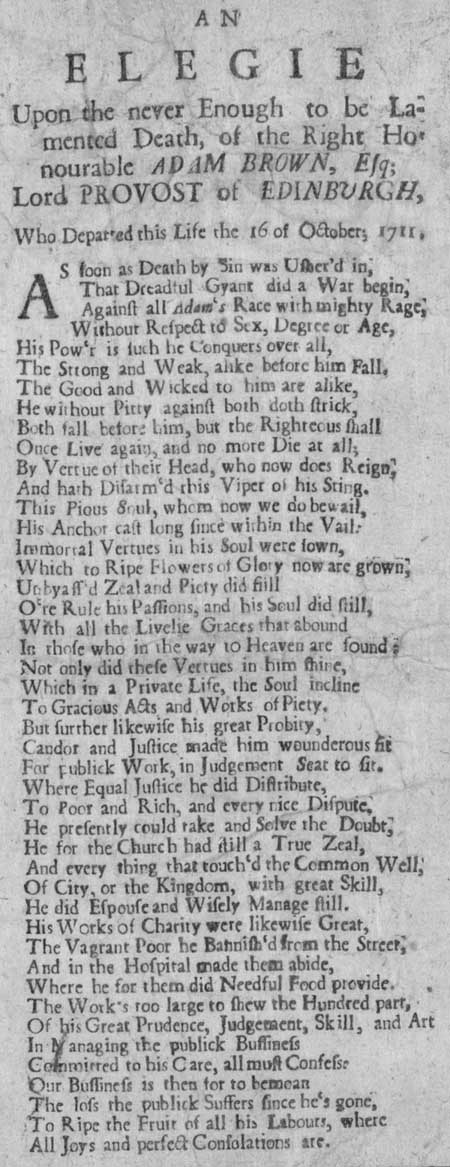Commentary
This memorial notice begins: 'An Elegie Upon the never Enough to be Lamented Death, of the Right Honourable ADAM BROWN, Esq; Lord PROVOST of EDINBURGH'. The elegy itself begins: 'As soon as Death by Sin was Usher'd in, / That Dreadful Gyant did a War begin, / Against all Adam's Race with mighty Rage, / Without Respect to Sex, Degree or Age.' Although no publication details are included on the sheet, it must have been published shortly after the 16th of October, 1711, which is the date when Adam Brown died. With religious imagery from the Old Testament dominating throughout, this elegy reveals as much about the God-fearing nature of Scottish society in 1711, as it does of Adam Brown's life and death. Indeed, the writer uses the name 'Adam' to provide him with an interesting angle for his elegy, as he commences his lines with the arrival of death following Adam and Eve's original sin and subsequent banishment from Eden. As there is not much information about Adam Brown's life in Edinburgh, it could be that his place in history was eclipsed by Auld Reekie's stunning reinvention as 'the Athens of the North' during the Scottish Enlightenment and Georgian period. 'Auld Reekie' and 'Athens of the North' are respective nicknames for Edinburgh. Broadsides are single sheets of paper, printed on one side, to be read unfolded. They carried public information such as proclamations as well as ballads and news of the day. Cheaply available, they were sold on the streets by pedlars and chapmen. Broadsides offer a valuable insight into many aspects of the society they were published in, and the National Library of Scotland holds over 250,000 of them.
View Transcription | Download PDF Facsimile
|
 |
Date published:
1711 shelfmark: S.302.b.2(085)
 View larger image
View larger image
|


